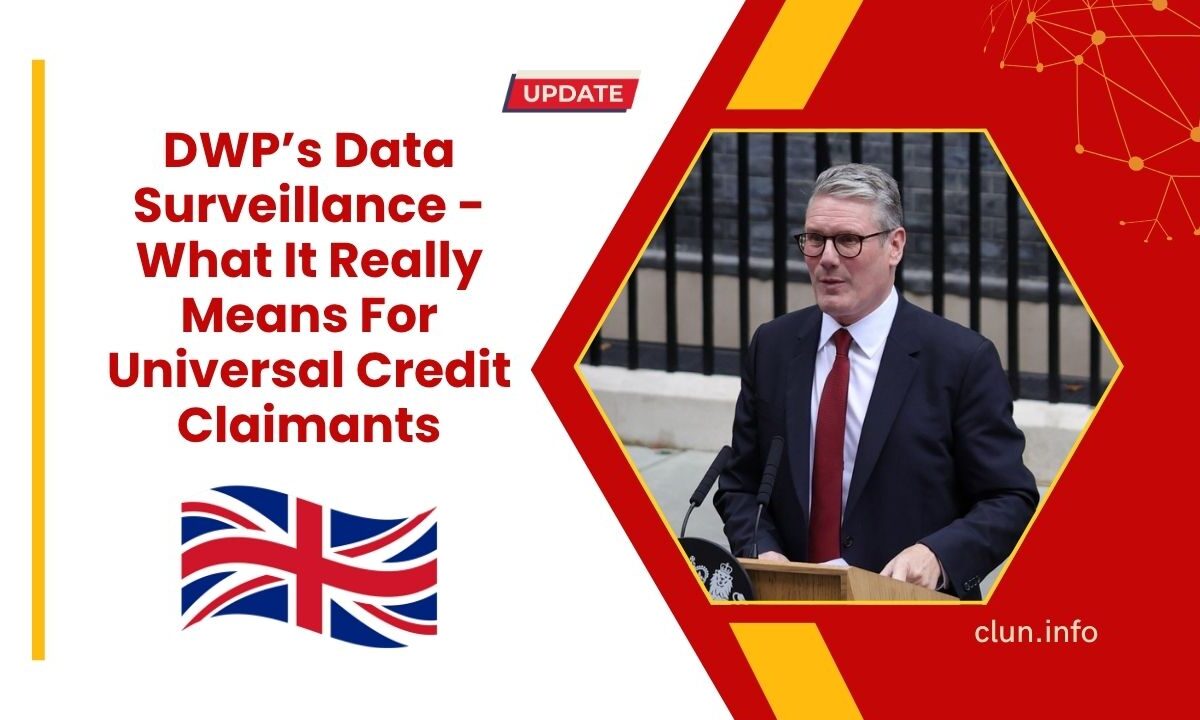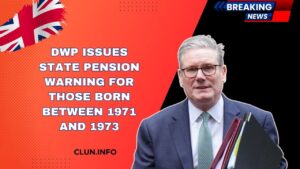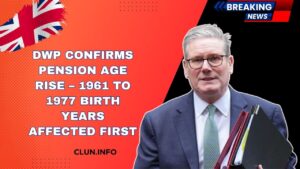In 2025, discussions around data surveillance and Universal Credit have sparked widespread debate among benefit claimants and policymakers.
Recent updates from the Department for Work and Pensions (DWP) and proposed legislation are reshaping how the government monitors welfare eligibility, triggering concerns around privacy, financial control, and fairness.
Let’s break down the facts, the current law, what the DWP has said, and what could change for Universal Credit claimants in the near future.
What Has the DWP Said?
In response to questions raised in Parliament by MP Angus MacDonald, DWP Minister Andrew Western clarified:
“No assessment has been made as the DWP does not currently or have any plans to use data surveillance to regulate, police or monitor the actions of individuals or groups in receipt of benefits.”
This may sound reassuring, but while there may be no “surveillance” as such, legislation progressing through Parliament could drastically change the landscape of how the DWP accesses claimants’ financial information.
Proposed Changes: New Powers to Access Bank Accounts
A bill currently moving through Parliament could give DWP investigators new powers to:
- Access bank account information of benefit claimants.
- Target those receiving Universal Credit, Employment and Support Allowance, and Pension Credit.
- Request three months of bank statements to verify eligibility or check for overpayments.
- Withdraw funds directly from claimants’ bank accounts if a debt to the DWP is unpaid and unresolved.
These measures are framed as anti-fraud initiatives, aiming to reduce fraud and errors in the welfare system.
Timeline for Action
While the DWP states no current surveillance is occurring, the bill would allow:
- Banks to be compelled to share claimants’ banking details.
- Notices to be served at least 28 days in advance if a deduction is going to be made from a claimant’s account.
- Powers to be extended beyond Universal Credit to other welfare benefits.
Why It Matters to Universal Credit Claimants
These changes could significantly impact how Universal Credit payments are handled, especially for those:
- Struggling to repay benefit overpayments.
- Undergoing DWP compliance checks.
- With disputed or unclear benefit eligibility status.
It also raises broader privacy and data access concerns, as the DWP could access private banking data without a warrant, court order, or consent in some cases.
Updated Universal Credit Standard Allowance Rates (2025)
The government has also passed a bill that will increase Universal Credit standard allowances in line with inflation annually from 2026/27 to 2029/30. However, there will be reductions in additional payments for people with health-related work limitations.
Here are the current monthly standard allowance rates for Universal Credit:
| Claimant Type | Monthly Rate (2025) |
|---|---|
| Single, under 25 | £316.98 |
| Single, 25 or over | £400.14 |
| Couple, both under 25 | £497.55 |
| Couple, one or both over 25 | £628.10 |
These figures are expected to rise with inflation but could be offset by reductions in health-related premiums.
What About Health Conditions?
The upcoming policy changes include cuts to additional benefits for claimants with health conditions affecting their ability to work. While the standard allowance will grow, these cuts could reduce overall support for vulnerable individuals.
Key Concerns Around Data Surveillance
Let’s explore the main reasons why critics and advocacy groups are raising alarms:
| Concern | Details |
|---|---|
| Privacy Violation | Direct bank access could undermine financial privacy |
| Disproportionate Targeting | Low-income groups may be unfairly targeted |
| Debt Recovery Pressure | Automated withdrawals could push claimants into financial distress |
| Data Misuse Risks | Risks of incorrect analysis or unauthorized data access |
| Lack of Transparency | Insufficient public debate and information on the new powers |
While the DWP currently denies any active “data surveillance,” proposed legislative changes signal a shift in how welfare benefits are monitored and enforced in the UK.
For Universal Credit claimants, this could mean more frequent and invasive financial checks, a higher risk of automatic deductions, and reduced flexibility in managing overpayments.
As these policies evolve, it’s crucial for claimants to stay informed, regularly review their bank statements, and ensure that all Universal Credit declarations are accurate and up-to-date.
Understanding your rights and responsibilities under the upcoming rules will be key to navigating the changing welfare landscape.
FAQs
Will the DWP be monitoring every Universal Credit claimant’s bank account?
Not directly. But under proposed legislation, they may request data from banks if an investigation is underway or if fraud or error is suspected.
Can the DWP take money directly from my bank account?
Yes, under the proposed bill, after a 28-day notice, the DWP can deduct funds for unpaid benefit debts if the claimant fails to respond.
Are these changes already in effect?
No, the legislation is still progressing through Parliament. But once passed, these powers will likely come into force in the near future.




